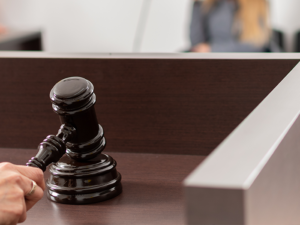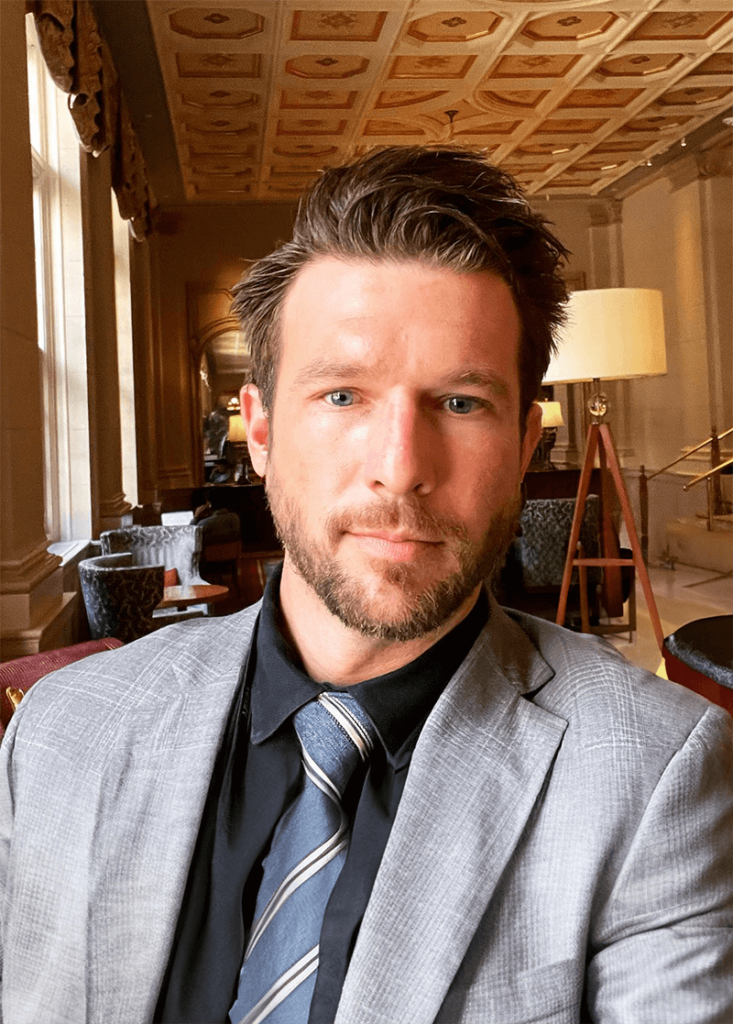
PRIVATE CLIENT
This article will serve as an introduction to and first installment of a series explaining the basics of Estate Planning. Subsequent articles discuss individual planning techniques and the various options available in a given situation, but before we can build your understanding, we need to lay a foundation. This article will do just that and will answer two questions; what Estate Planning is and why do I need it.


Estate planning requires a client to contemplate their mortality, a subject most shy away from for as long as possible. And why not right? You are healthy. You may be thinking, and clients often ask, why it is all necessary when they are still so far off from death and, even if they were to die, their assets aren’t substantial enough to necessitate this sort of complexity so why bother?
As to the first contention regarding the perceived time until death, that is a time frame that can shrink and then grow and then shrink again in an instant. One moment we are immortal, untouchable. The next, death is so close we can feel his breath. We don’t chose when we exit this world, so plan early, plan well.
In addition to being willfully blind to their own mortality, clients asking that question have a fundamental misunderstanding of what is meant by Estate Planning. So what is Estate Planning? Before one can understand and answer that query, one must first understand the concept of an Estate.
Ask any random person on the street what the term Estate means, and I guarantee that ninety percent or more of the respondents will provide an answer that falls into one of the two following categories. The first category revolves around death, the reading of a loved one’s Last Will & Testament, the dividing of assets, funerals. The second category revolves around great country homes, gilded age mansions, castles, or vast tracks of land. Both of those categories revolve around and refer to things that are indeed Estates, but only two small subsets of Estates; that of a decedent’s testamentary estate and an estate in land respectively. While those are two types of Estates, the root word is so much broader and more encompassing.
The legal concept of an Estate is quite literally the interest which any one has in lands, or in any other subject of property. Black, Henry. 2nd Edition. 1910. Put in layman’s terms, an Estate is the sum total of everything you own at a given moment, disregarding any offset for liabilities. It includes all forms of ownership, whether it be land held in fee simple or a lease for a term of years. Tangible property like jewelry and intangibles like trademarks. It includes ownership limited by time, contingency, and right of entry. Whatever you own and however you own it, it forms your Estate. Everything you own, your present Estate. It doesn’t get much more important than that, does it? Your every possession. What about your future Estate? Maybe it does get more important. As you age you are less able to adapt to change and less resilient to emergency situations. Protecting your “things” from needless loss, using your “stuff” without waste, turning “nick knacks” into assets and arranging them in such a way that they become independent of you and manage their own existence, an existence meant to protect you and those you care about, to let you lead a life of comfort, to leave your mark on this world, and finally to leave behind a legacy that endures long past the failing of your flesh. That is the goal of Estate Planning. It’s arranging and structuring your assets in a way so as to maximize their utility, maximize their income producing potential, and shield them from loss with a little waste as possible, yes at death, but perhaps even more importantly, during life.
Moving on to the next complaint I commonly receive from clients, the one about not having enough money for it to matter. I like to respond by reminding them of an old challenge on the Price is Right. In one of the challenges the contestant is placed in an enclosed room that is filled with money. Air is then piped through that room causing the money to fly wildly about the space, The contestant is then given a set amount of time to capture as many bills as possible and stuff them into a tiny bag. Whatever is in that bad at the expiration of the allotted time, they keep. If you were that contestant, would you want the largest bag possible? Of course. A larger bag both holds more money than a smaller one and makes the money easier to catch and control as it flies wildly about the room. The same holds true for estate planning. Think of a well-structured and properly executed Estate Plan as having the largest bag possible, one that quickly tames all the chaotic money, and makes it yours. You never know when your seat will be called and it’s your turn to play, so shouldn’t’ you be prepared?
Now that we have clarified what Estate Planning really means and why everyone should commission a plan for themselves regardless of their means, what are some of the things that a well-designed and properly executed Estate Plan can do?
Estate Planning is, at its core, all about control. First and foremost, it allows one to dial forward or dial back one’s level of control over a given asset of one’s Estate until one finds the perfect balance where one has just enough control to get the benefit one wants from a particular asset, but not enough control to so as to bear the full weight of said assets responsibility, maintenance, or liability. It is the real-world manifestation of the trite colloquial “to have ones cake and eat it too.” By bifurcating an assets legal and beneficial ownerships, or splitting that ownership temporally, timing gains and losses=, one can reduce one’s exposure to liability of an asset or responsibility of maintenance of an asset just enough to still maintain its benefit, freeing ones time for other pursuits.
In addition to striking the proper balance between too much and too little control, one can use a well-designed and properly executed Estate Plan to EXTEND ones control further, both physically and temporally, than one could on one’s own. A network of advisors and fiduciaries acting in furtherance of a shared objective can reach a much broader audience than one acting alone. And that same network of advisors, following the directions outlined in the well planned and properly executed Estate Plan they serve, are able to continue their work in furtherance of that plan much longer than one mortal lie allows.
If Estate Planning is the Earth and its core is control, then its mantel is timing. A well designed and properly executed Estate Plan allows for the timing of gains and losses to be controlled and realized at a time or during an event that will result in the most advantageous of outcomes, whether those outcomes be taxes, liability, or realization events.


Around that core of control and mantel of timing, a well-designed and properly executed Estate Plan provides a crust of protection, shielding the properly timed and controlled assets beneath it from waste, loss, or liability. By taking advantage of concepts like bifurcation of title one can ensure that the loss of or damage to one piece of the Estate does not spread to and infect the whole. Like the airtight compartments in a ship that seal off when there is damage, a well-designed and properly executed Estate Plan keeps the Estate afloat while one part of it takes on water.
Finally, around that hardened crust protecting what lies beneath is the hazy glow of an atmosphere, obscuring and obfuscating what the crust protects below. A well designed and properly executed Estate Plan shields the identity of the beneficial holder of the Estate’s assets, providing that holder with an upper hand in many interactions, his true wealth unknown to those with whom he interacts.
The use of control and timing to maximize the utility and reach of one’s Estate and while at the same time shielding that Estate from waste, loss, and liability all while obscuring said Estate from prying eyes allowing the beneficial holder to enjoy that utility and reach without revealing the extent of his holding; that is Estate Planning.

Chairman, CEO, & Managing Director of Legal Services
The Law Offices of Joshua M. Stahley, P.A
We are a boutique law firm combining the breadth of practice and knowledge one would expect from a large global law firm with the personal, white glove, touch our clients love and that we proudly own as our hallmark. Our team stands ready to advise and provide counsel on matters ranging from car accidents to international tax controversies, divorce to estate planning, and everything in between.


